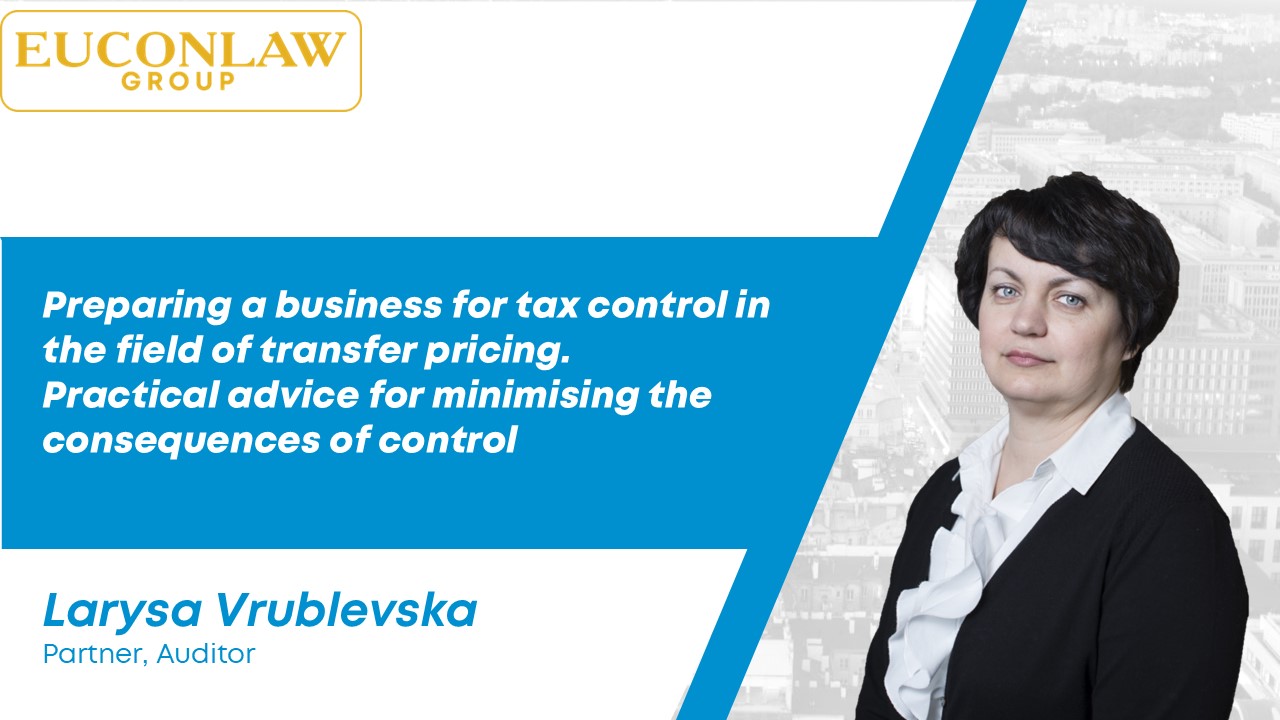
On 6 February 2025, Larysa Vrublevska, Partner and Head of the Transfer Pricing Practice at EUCONLAW Group, conducted a webinar titled “Preparing a Business in Ukraine for Tax Audits in Transfer Pricing. Practical Insights for Minimising Audit Risks.”
During the event, Ms Vrublevska reviewed key legislative changes in Ukraine, effective from 1 January 2025 and highlighted one of the positive developments for Ukrainian taxpayers—the approval of a new list of jurisdictions. “The list is now compiled based on different criteria, including only offshore jurisdictions and states/territories that do not cooperate in tax information exchange. Overall, 41 countries were removed from the list, while 9 new ones were added,” she noted.
Among the significant changes to be aware of, Larysa Vrublevska also emphasised amendments regarding the determination of related-party transactions. “As of 1 January, Ukrainian tax authorities have been granted the right to establish related-party status based on the results of an audit,” she stated.
The next section of the webinar provided a detailed analysis of the key aspects of preparing for a tax audit in transfer pricing (TP) in Ukraine, with a focus on monitoring controlled transactions and the approaches used by the Ukrainian tax authorities to assess risks.
Special attention was given to the procedures for issuing inquiries and the topics covered in tax authority requests for documentation and supporting evidence. The principles of preparing TP documentation were also discussed. Ms Vrublevska highlighted the liabilities associated with failing to submit reports or submitting them late and reviewed Supreme Court case law on TP disputes in Ukraine, providing practical recommendations to mitigate risks.
She also delved into situations where Ukrainian businesses might receive inquiries from tax authorities, noting that if discrepancies or risks are identified, taxpayers receive written requests. After analysing the submitted information and reports, tax authorities decide whether additional data is needed or if a full audit should be initiated. “Experience from the past 10 years in Ukraine shows that no TP audit has started without a prior information request. If tax authorities identify TP risks, they initiate an audit,” she stressed.
In conclusion, Ms Vrublevska advised Ukrainian businesses not to fear inquiries from tax authorities but rather to approach reporting with diligence and responsibility. “It is essential to prepare documentation in a timely manner, substantiating transaction conditions, and to avoid escalating the situation to an audit or court dispute,” she concluded.